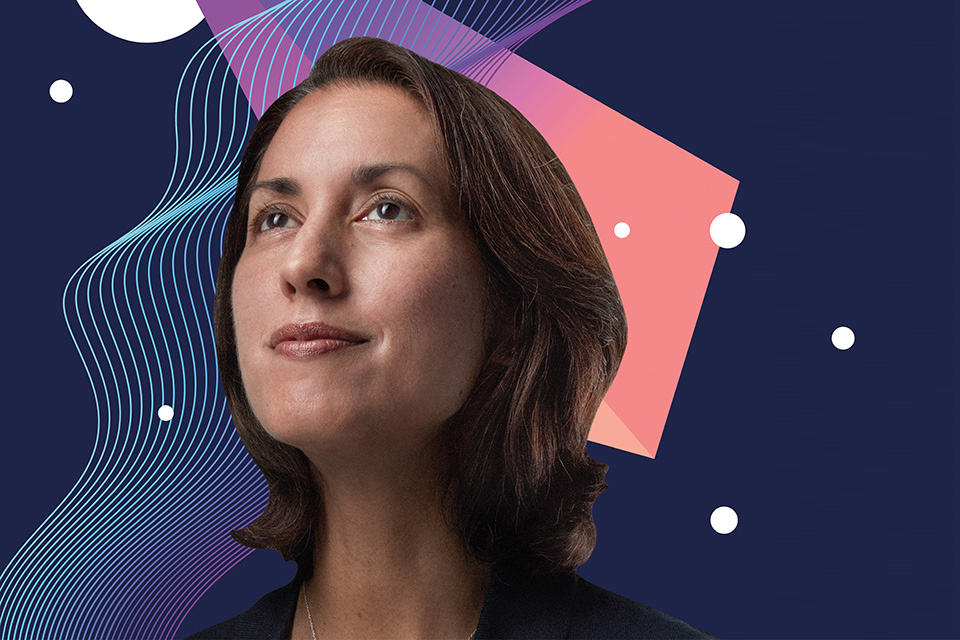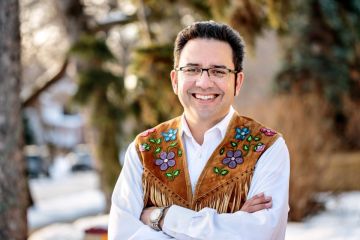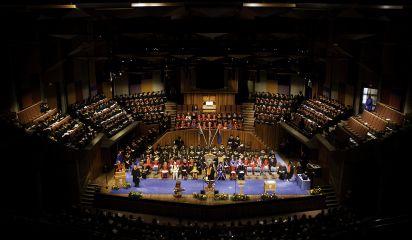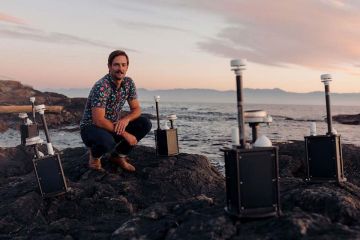Space age: rising star
- Brad Buie

Law grad Indra Heed Hornsby is in demand as an aerospace industry expert on law and policy
Indra Heed Hornsby (LLB ’97), has been on a clear trajectory to space from the time she was a toddler growing up in Kamloops, BC. Even as a one year old, Hornsby would become entranced when the TV channel was turned to Star Trek.
After completing an undergraduate degree with a focus on aerospace policy at Queen’s University, Hornsby came to UVic’s Faculty of Law in the 1990s to develop a skill she could bring to the space sector. Her goal was untraditional, but she was encouraged by William Neilson (now a UVic professor emeritus), who taught competition policy.
“I was running counter to the flow,” says Hornsby. “Professor Neilson said, ‘Yeah, you’re quirky, but if that’s your passion, go do it and see what happens.’”
For one co-op term, while the rest of her peers were looking to article at a law firm, she replied to a Vancouver aerospace company’s ad recruiting engineers. The company, MacDonald Dettwiler, today known as Maxar Technologies, hired her on as a junior contract specialist.
After graduation, Hornsby stayed with Maxar for 17 years, working on leading-edge programs with the Canadian Space Agency and NASA. Among them were RADARSAT, a Canadian remote sensing satellite program, and the iconic Canadarm, the long and lanky robotic arm that plucked and positioned satellites, cargo and astronauts for the Space Shuttle and International Space Station programs.
“I have a lot of scarring,” says Hornsby with a chuckle, speaking of her years of experience, much of it travelling between Vancouver and Washington, DC.
After Maxar, Hornsby worked at Saab Aerospace and Defence in Washington, DC, and then had a stint as General Counsel at Seattle-based Spaceflight Industries, which provides launch services to anyone—commercial, non-profits or governments—wishing to access space through ridesharing small satellites. She was a key executive in the formation of the NewSpace venture—a movement encompassing an emerging private spaceflight industry—including securing venture financing for “first of” missions, including ride-share missions in which multiple satellites are deployed from a single rocket launch.
Hornsby brings all that experience to her current role as Executive Vice President, Corporate Development for Rocket Lab, a young company she joined in early 2018. In her corporate development role, she works investments, strategic partnerships and strategic or advanced programs in terms of where the company can go with its technology and business plans. She is also helping to scale the company, which includes identifying needed functions, roles and processes.
“It’s bringing the professional outlook to these young companies, as they don’t necessarily have all of the aerospace industry experience and heritage needed,” Hornsby explains.
Hornsby is excited by “Space 2.0” or the new “Orbital Economy.” For decades, space was only within reach of national governments. The billions invested into research and development and the long time horizons all but barred private enterprise from being anything other than builders of space infrastructure in partnership with government. That’s now changed.
“For the first time, we have the synergy of technology advancement and access to capital,” says Hornsby.
For Rocket Lab, this means they will have the capability of delivering small satellites to low Earth orbit as frequently as twice per month. Such a launch cadence, as it’s known in aerospace parlance, means more businesses accessing space.
“Our customers are more than the usual traditional satellite operators,” says Hornsby. “Rather, their business is getting the latest location on the planet imaged upon request, like Google mapping, and developing information analytics on the economy —and that requires satellite infrastructure and access to space.”
For Hornsby, her motivation is to keep moving the needle on what we’re doing in space and how we’re doing it. Would she like to end up on a colony on Mars?
“Only if we could take our dogs with us,” says Hornsby. “But I think my husband and I would need to have a conversation first.”
Photos
In this story
Keywords: alumni, law, astronomy
People: Indra Heed Hornsby
Publication: The Torch





